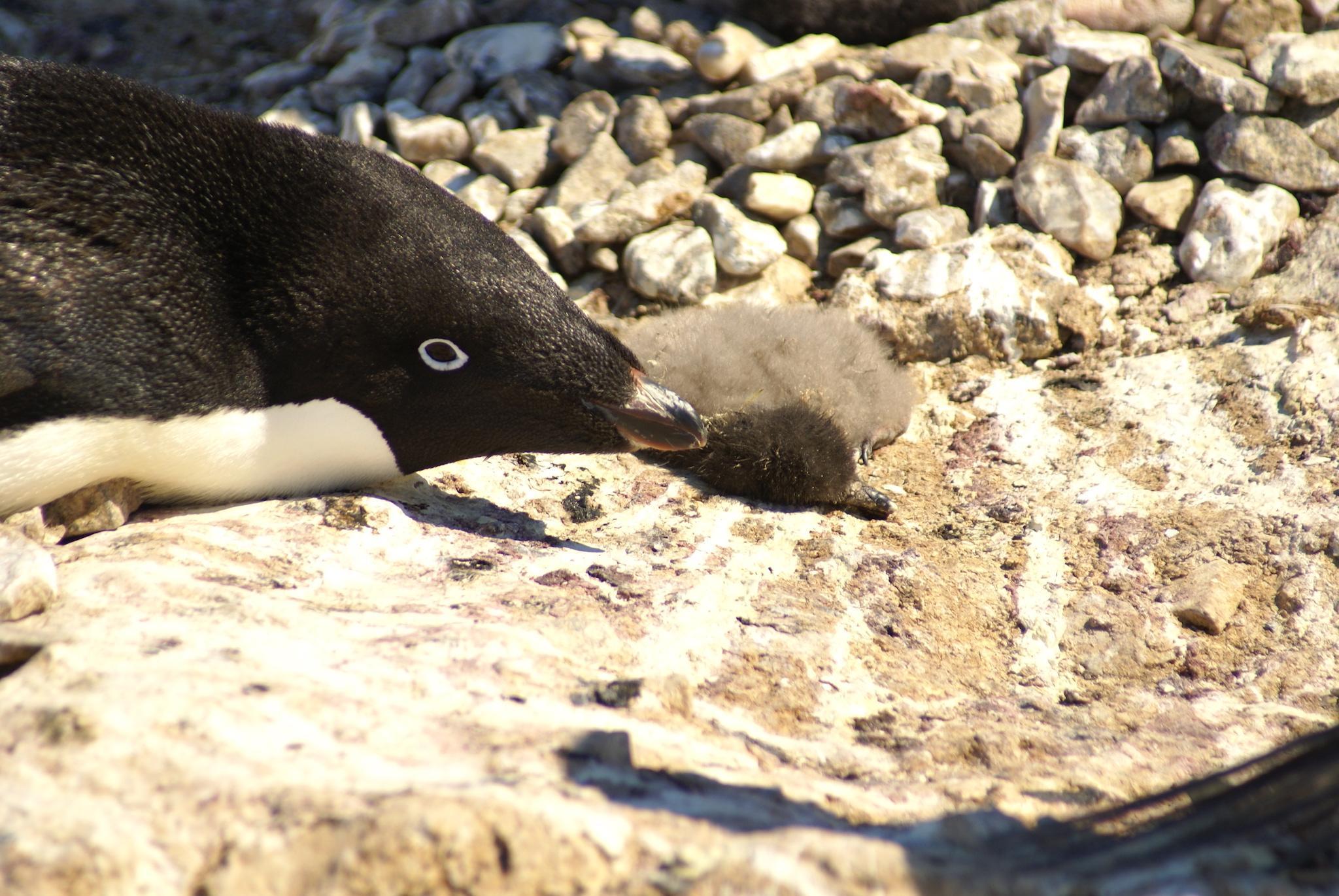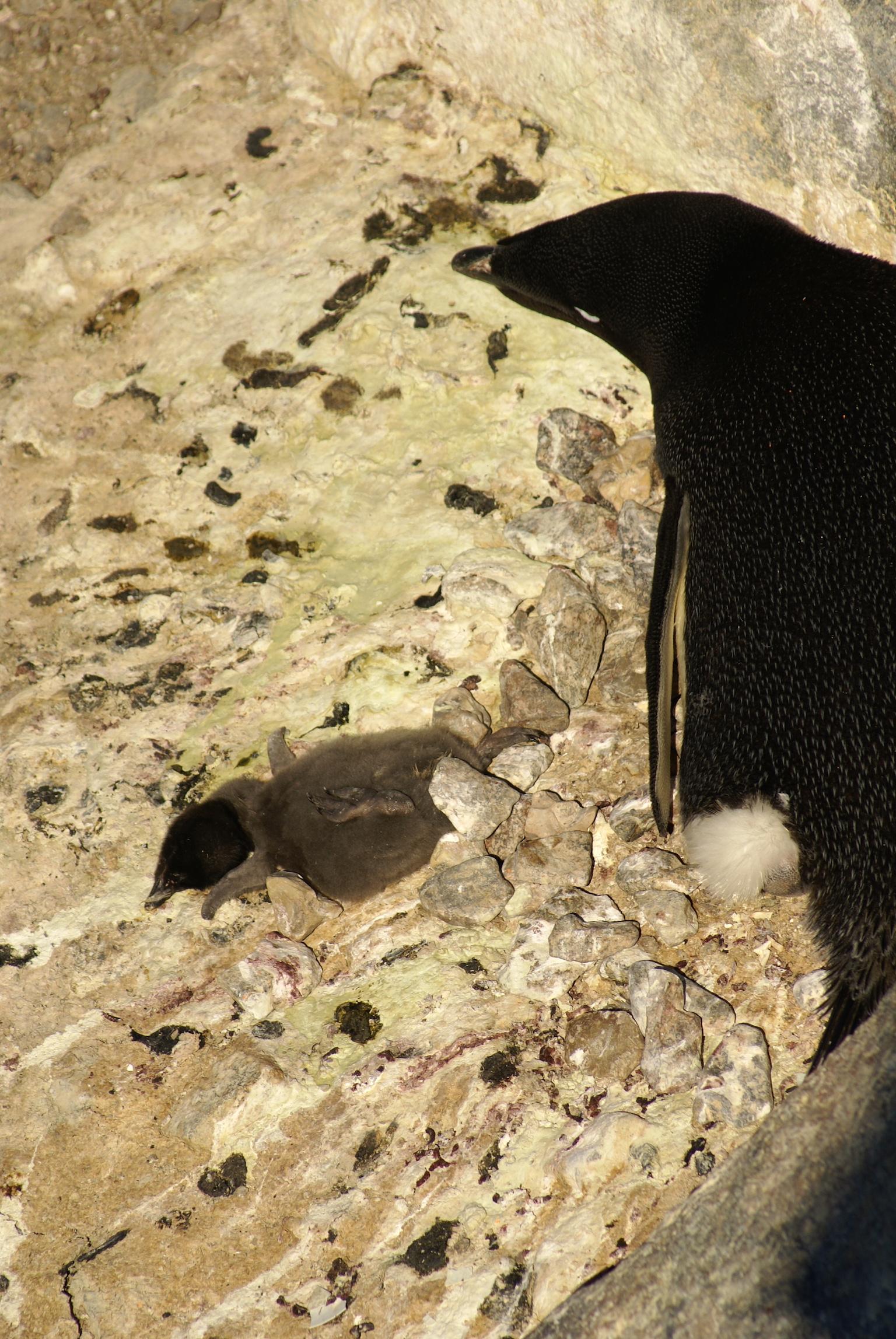Thousands of tiny baby Adélie penguin starve to death as changing weather forces parents to travel for food
Only two chicks survived – with the rest starving as their parents were forced to trudge across Antarctica to eat

Your support helps us to tell the story
From reproductive rights to climate change to Big Tech, The Independent is on the ground when the story is developing. Whether it's investigating the financials of Elon Musk's pro-Trump PAC or producing our latest documentary, 'The A Word', which shines a light on the American women fighting for reproductive rights, we know how important it is to parse out the facts from the messaging.
At such a critical moment in US history, we need reporters on the ground. Your donation allows us to keep sending journalists to speak to both sides of the story.
The Independent is trusted by Americans across the entire political spectrum. And unlike many other quality news outlets, we choose not to lock Americans out of our reporting and analysis with paywalls. We believe quality journalism should be available to everyone, paid for by those who can afford it.
Your support makes all the difference.Thousands of tiny baby penguins starved after changing weather forced their parents to trudge across Antarctica in search of food amid the changing climate.
A colony of 18,000 pairs of Adélie penguins in Terre Adélie, Antarctica suffered the catastrophic breeding failure earlier this year, according to the WWF. The incident happened because unusually extensive sea ice forced their parents to travel further in search of food, leaving their chicks at home to starve, a reminder of the horrifying effects of the changing climate.
The penguins are known as one of the hardiest creatures on the Earth. But they are feeling the horrifying effects of global warming, with campaigners warning that the event should force people to take notice of their problems.
Though Adélie penguins are generally doing well in East Antarctica, where they mostly eat krill, a small shrimp like crustacean. But they are declining in the peninsula, where the effects of climate change are already being felt.
Four years ago, the same colony had another, similar catastrophic shock. It consisted of 20,196 pairs then – and not a single one was able to produce a chick.
That time around, unusual amounts of sea ice combined with warm weather and rain, before a rapid drop in temperature. Many of the chicks became saturated and froze to death.
"Adélie penguins are one of the hardiest and most amazing animals on our planet," said Rod Downie, head of polar programmes at WWF. "This devastating event contrasts with the Disney image that many people might have of penguins. It’s more like ‘Tarantino does Happy Feet’, with dead penguin chicks strewn across a beach in Adélie Land.

"The risk of opening up this area to exploratory krill fisheries, which would compete with the Adélie penguins for food as they recover from two catastrophic breeding failures in four years, is unthinkable. So CCAMLR needs to act now by adopting a new Marine Protected Area for the waters off East Antarctica, to protect the home of the penguins."
A Marine Protected Area, or MPA, would allow the penguins to be kept from activities that could further reduce their numbers, said scientists who work there.
"The region is impacted by environmental changes that are linked to the breakup of the Mertz glacier since 2010," said Yan Ropert-Coudert, who leads the penguin programme at the research station next to the colony. "An MPA will not remedy these changes but it could prevent further impacts that direct anthropogenic pressures, such as tourism and proposed fisheries, could bring".
Join our commenting forum
Join thought-provoking conversations, follow other Independent readers and see their replies
Comments